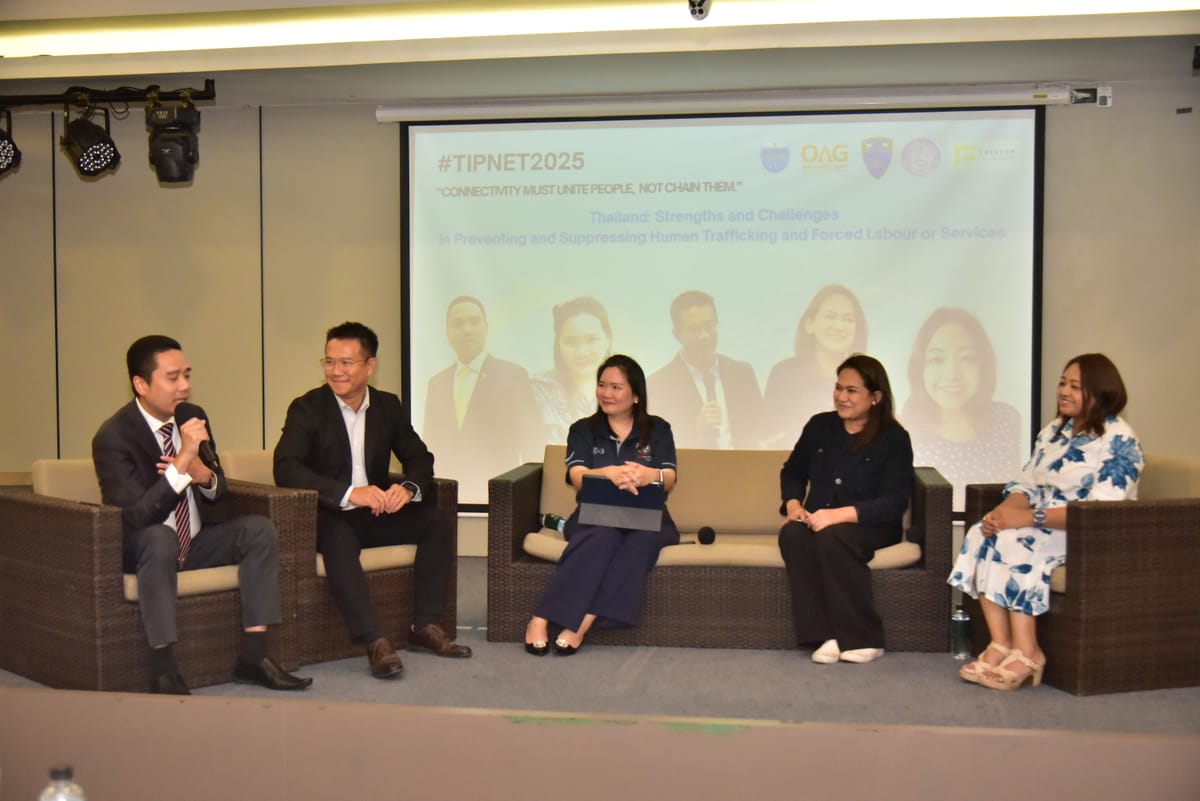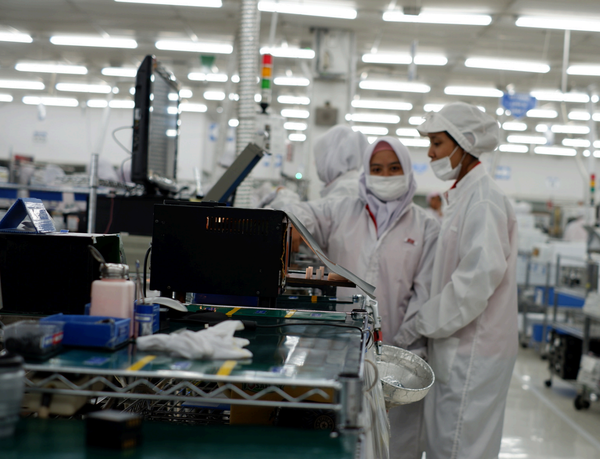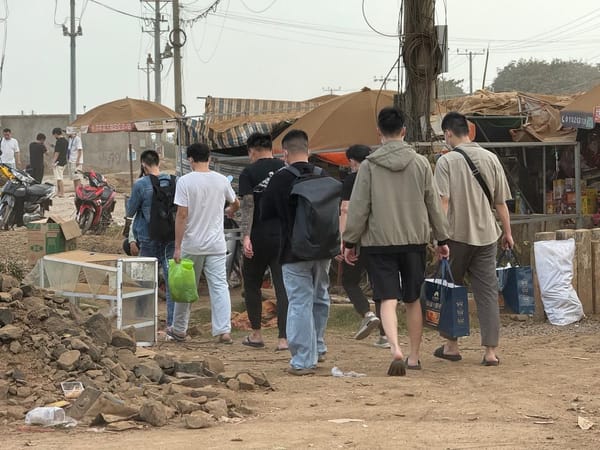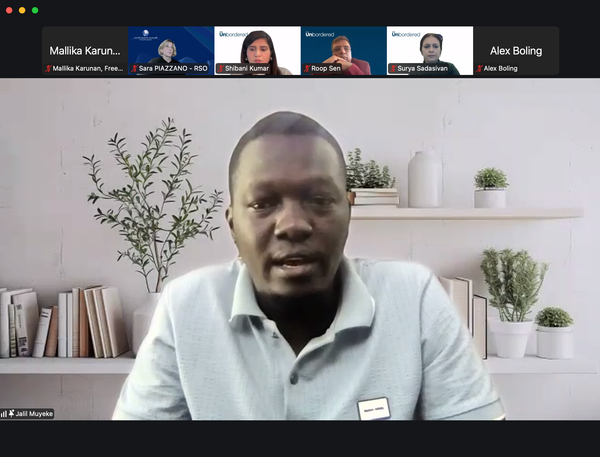Thailand reflects on successes and challenges at its annual TIP conference
Authorities, academics and CSOs convene to discuss Thailand’s trafficking response, the European Parliament agrees to further scale back corporate due diligence requirements, and German NGO data shows a notable increase in documented cases of trafficking.

Freedom Collaborative co-presented a panel on Thailand’s strengths and challenges in preventing human trafficking last month at TIPNET 2025, the Department of Special Investigation’s (DSI) national conference on cooperation in combating human trafficking. The panel, titled “Thailand: Strengths and Challenges in Preventing and Suppressing Human Trafficking and Forced Labour or Services”, also featured representatives from Thailand’s Office of the Attorney General, Immigration Bureau, and Provincial Social Development and Human Security Office.
During the session, we offered a regional and global perspective on Thailand’s key strengths. These included the Thai Government’s extensive referral network connecting national and international law enforcement agencies, the expedited and trauma-informed handling of child trafficking and exploitation cases, and the robust alliances between government and civil society organizations (CSOs) – a model many Southeast Asian nations view as best practice.
In reflecting on ongoing challenges, we shared insights gathered from local and grassroots organizations, highlighting persistent gaps in addressing complex trafficking cases, particularly those involving forced criminality and labour exploitation. Limitations in cross-border collaboration were also discussed, alongside the continuing struggle of government departments and CSOs to work in tandem effectively, a struggle which is often rooted in a lack of trust and mutual understanding of their respective roles.
The conference was convened by the DSI through its Bureau of Human Trafficking Crime, in collaboration with the United Nations Office on Drugs and Crime (UNODC) with support from the European Union. TIPNET remains Thailand’s largest national platform dedicated to addressing human trafficking and forced labour, and brings together representatives from the Office of the Attorney General, Royal Thai Police, and various ministries, as well as international organizations, foreign embassies, and academic institutions. This year’s event gathered more than 170 participants from more than 50 agencies, including law enforcement, victim protection and policy-making institutions.
Since its formation, TIPNET has served as a critical forum for fostering cooperation between the DSI, regional law enforcement and Thai CSOs, facilitating the exchange of knowledge, experience, and promising practices while addressing emerging trends and increasingly complex forms of trafficking. The 2025 conference focused on developing practical policy recommendations aligned with international standards, a timely effort as trafficking networks increasingly exploit digital technologies through cybercrime, online scams, and other transnational crimes targeting children, young people, and vulnerable populations.
Just a week after TIPNET, the U.S. State Department released its annual Trafficking in Persons (TIP) Report, maintaining Thailand’s Tier 2 ranking. The report recognized progress, such as expanded investigations, prosecutions, and convictions; improved cross-border cooperation; and new tools such as a consular guidance pamphlet and an updated victim identification system incorporating indicators for forced criminality and child labour. Authorities also opened a major new facility dedicated to victim identification and referrals.
However, the report also noted ongoing challenges, including inconsistent screening practices, restrictions requiring foreign victims to remain in shelters, uneven service quality, and persistent corruption and official complicity that continue to impede effective victim protection and accountability.
Here’s a roundup of other noteworthy news and initiatives:
At the close of the UN Human Rights Council’s 60th session, CIVICUS and partner NGOs highlighted both progress and persistent gaps in global human rights protection. They welcomed the adoption of the resolution merging the mandates on trafficking in persons and contemporary forms of slavery into a new post, Special Rapporteur on Contemporary Forms of Slavery and Trafficking in Persons, and noted the renewal of the Cambodia mandate amid ongoing repression and shrinking civic space.
Yesterday, the European Parliament’s Legal Affairs Committee approved a compromise under the Omnibus Simplification Package to scale back corporate sustainability reporting and due diligence requirements within the EU’s Green Deal framework. The agreement raises reporting thresholds and limits liability and supply chain obligations, reflecting political pressure to ease regulatory burdens amid Europe’s shift to the right.
At the Berlin Process Foreign Ministers’ Meeting on the Western Balkans in Belfast, UK Foreign Secretary Yvette Cooper announced £10 million in funding for programs to counter human trafficking along the Balkan route. The summit, part of the UK’s presidency of the initiative, emphasized regional stability, the combating of organized crime, and addressing irregular migration flows through closer European cooperation.
The U.S. House Committee on Foreign Affairs has introduced the Dismantle Foreign Scam Syndicates Act, calling for a national strategy, dedicated funding, and sanctions on 43 of the key elites and transnational criminals driving Southeast Asia’s scam and trafficking networks. The bill marks the first time the U.S. Government has publicly named some of the senior figures, including members of Cambodia’s ruling elite and Myanmar militia leaders, behind a system that has defrauded billions and forced hundreds of thousands into criminal exploitation.
South Korean president Lee Jae Myung has called for “all-out” diplomatic efforts to protect the country's citizens in Cambodia, after a university student was lured there by a scam ring and allegedly tortured to death. The case has exposed a sharp rise in the number of South Koreans trafficked into online scam centers in recent months, prompting Lee to call for victims to be swiftly repatriated. The country is also seeking to establish a “Korean desk” in Cambodia so South Korean officers can work directly with Cambodian police.
A new report from the University of Toronto’s International Human Rights Program has found that goods made with U.S. prison labour are likely entering Canadian supply chains despite a national ban on forced labour imports. The report calls on the Canadian Government and businesses to strengthen enforcement and human rights due diligence to prevent modern slavery and racial injustice from being embedded in the economy.
Germany’s NGO network against human trafficking, KOK e.V., has published new 2024 data showing 868 documented cases of trafficking, a 23 per cent increase from the previous year, with sexual exploitation remaining the most common form. Marking EU Anti-Trafficking Day, KOK called for secure and long-term funding for specialized counseling centers, warning that many are overwhelmed and unable to take on new cases despite rising demand.
On 30 October, the East and Horn of Africa Anti-Trafficking Network (EHAAT) will host a webinar with the East Africa Philanthropy Network and CATIP-Uganda to engage private sector and philanthropic partners in regional anti-trafficking efforts. The session will present findings from EHAAT’s regional trafficking routes mapping report and explore opportunities for collaboration on ethical recruitment, supply chains, and survivor support. Register here!




